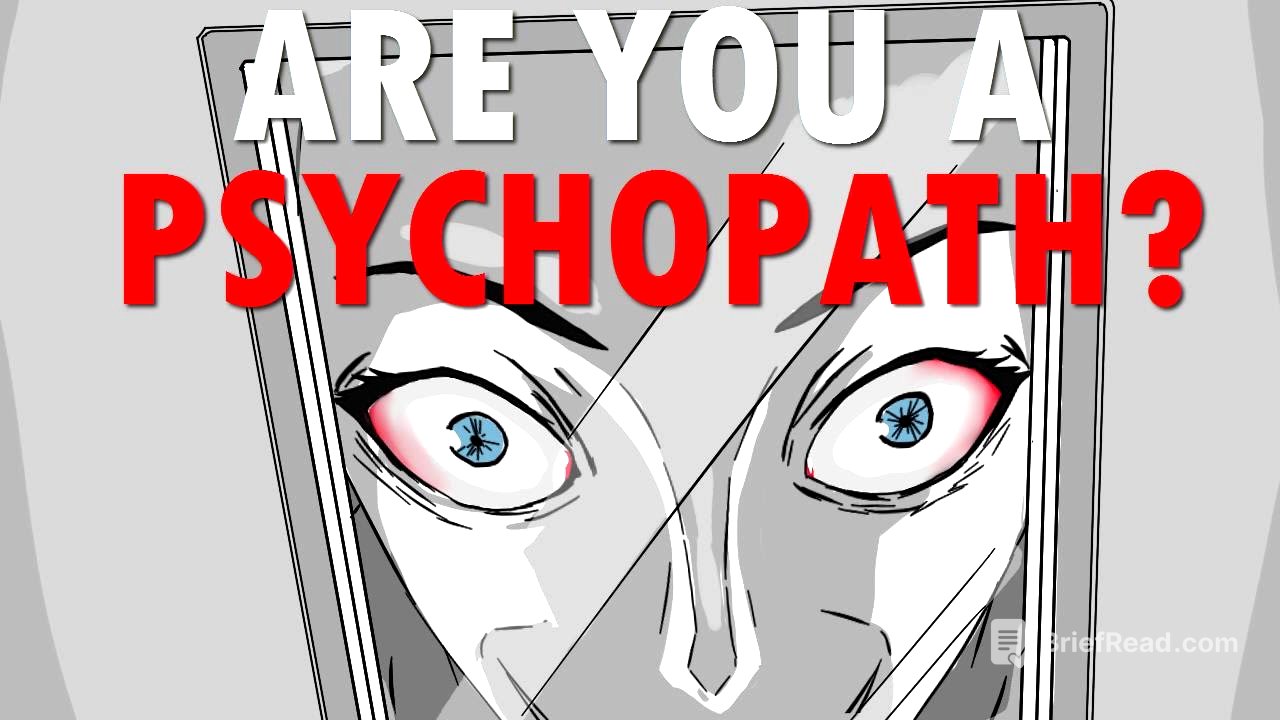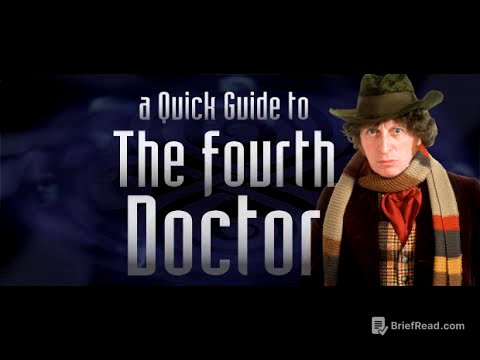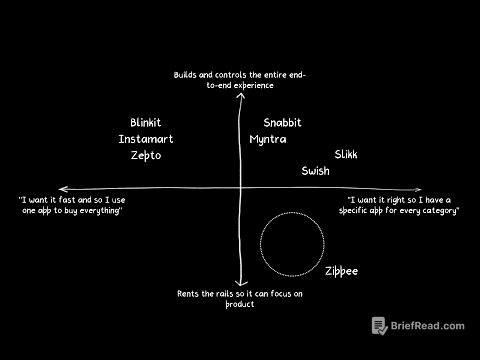TLDR;
The video presents a series of riddles and a multiple-choice question designed to reveal psychopathic tendencies in the participants' thought processes. Daniel poses the questions to Hosuh and Stephen, and their answers are analyzed based on how a "normal" person versus a "psychopath" would respond. Stephen demonstrates a knack for answering like a psychopath, while Hosuh typically provides more conventional responses. The video concludes by reminding viewers that the quiz is just for fun and not scientifically accurate.
- The riddles explore dark scenarios and require thinking from an unconventional, often disturbing, perspective to answer "correctly" as a psychopath would.
- Stephen's accurate answers lead to humorous reactions from Daniel and Hosuh, creating a lighthearted atmosphere despite the morbid subject matter.
- The final question involves a multiple-choice scenario where the "psychopathic" answer is statistically determined, adding a layer of psychological intrigue.
Intro [0:00]
Daniel introduces a series of riddles and questions intended to reveal whether someone has psychopathic tendencies. He clarifies that the test is not scientific but rather for entertainment purposes. The goal is to analyze how the participants answer the questions, distinguishing between "normal" responses and those indicative of a psychopathic mindset.
Riddle 1: The Unhappy Kid [0:34]
The first riddle involves a child who receives a soccer ball and a bicycle from Santa Claus but is unhappy. Stephen suggests the child is greedy and wanted more, while Hosuh believes the child knows Santa isn't real and that it's his dad. Daniel reveals that the "psychopathic" answer is that the child doesn't have legs, highlighting the dark and unexpected nature of the test.
Riddle 2: The Thirsty Man and the Robber [1:37]
In this scenario, a man sees a robber after getting a drink of water and hides in a closet. Stephen states he would pretend to leave, then stab the man when he exits the closet to eliminate witnesses. Hosuh says he would flee the house. Daniel reveals that the "psychopathic" answer is to wait quietly for the man to come out and then kill him, which Stephen's initial response aligns with, surprising everyone.
Riddle 3: The Murder Witness [2:50]
The third riddle describes witnessing a murder from a 5th-floor apartment, after which the murderer points and moves his finger up and down. Stephen believes the murderer is coming for him to eliminate witnesses. Daniel reveals the "psychopathic" answer is that the murderer is counting the floors to determine which apartment the witness is in, showcasing a cold and calculating thought process.
Riddle 4: The Aunt's Funeral [4:23]
This riddle involves a girl who falls in love with a man at her aunt's funeral and then kills her sister the next night. Stephen immediately answers that she killed her sister to see the man again at another funeral. Daniel confirms this is the "psychopathic" answer, as a normal person might assume jealousy or romantic rivalry as the motive.
Question 5: The Dark Forest [5:18]
Daniel presents a multiple-choice question where the participants must imagine walking through a dark forest and turning around to see something. The options are the opposite sex, nothing, a ghost, a wild animal, and a dog. Hosuh chooses "nothing," and Stephen suggests the opposite sex. Daniel reveals that the "psychopathic" answer, according to a John Hopkins professor, is a dog, though he doesn't know the specific reasoning behind it.
Riddle 6: The Elevator Murder [6:51]
In the final riddle, a murderer stabs a man five times in an elevator with windows and then watches the elevator. Hosuh explains that the murderer watches to avoid standing out, as others would also be watching the scene in a public place like a mall. Daniel confirms this is the correct answer, as fleeing would draw attention.
Conclusion [8:07]
Daniel concludes that Hosuh is a normal person, while Stephen's results are more ambiguous. He reiterates that the test is not scientific and is just for fun. The video ends with a reminder not to take the results too seriously.









